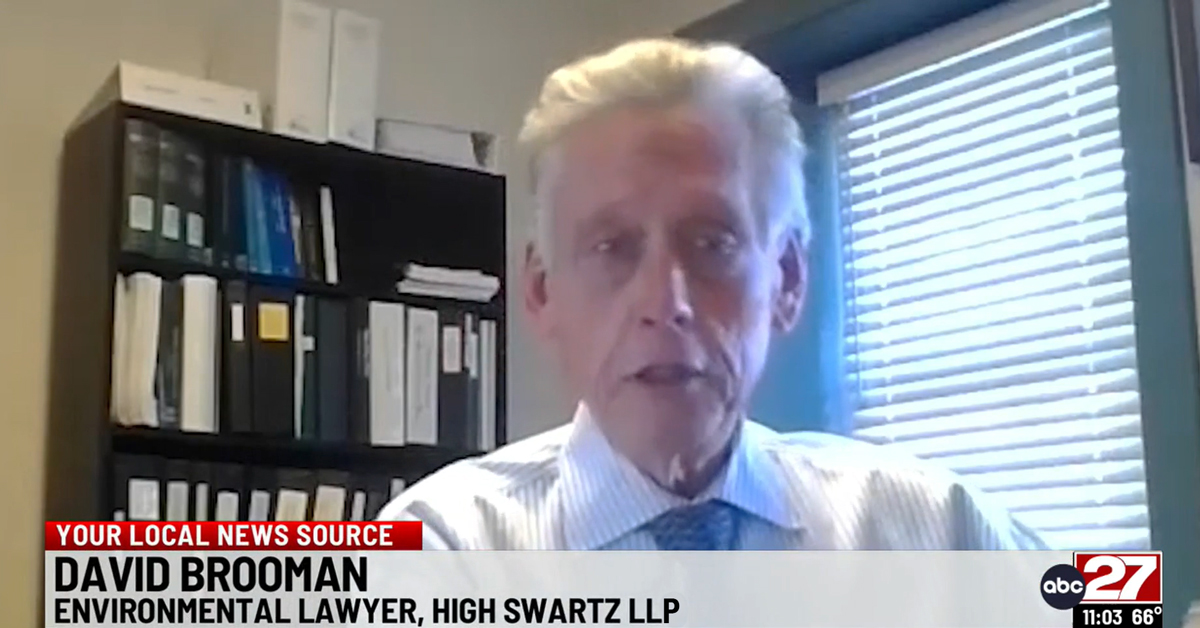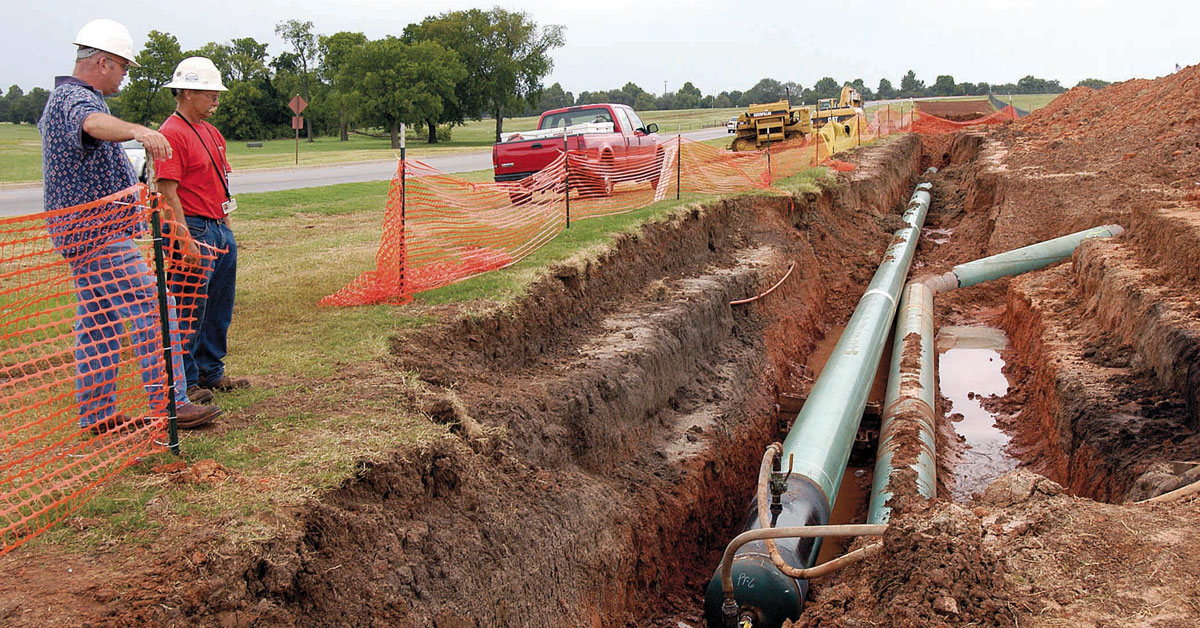You can watch David's commentary starting at 2:22.
Environmental, Land Use, and Municipal attorney David J. Brooman recently commented on the governor's criminal referral of Norfolk Southern. David also touched on the the train derailment's environmental implications during his interview with Sarah Willson of ABC27 News Harrisburg.
About the Train Derailment: On February 3, 2023, about 50 Norfolk Southern freight cars derailed near East Palestine, a town of roughly 4,800. While no one was injured in the wreck — which happened because of a mechanical issue with a rail car axle — the surrounding area had to be evacuated due to fears of a potential explosion from the hazardous chemicals on board the train. Beaver County PA was among the areas evacuated.
Below are recent developments on the incident:
- PA governor Josh Shapiro accused Norfolk Southern of mismanaging the train derailment disaster from the outset, citing the company’s failure to immediately notify the Pennsylvania Department of Environmental Protection and the Pennsylvania Emergency Management Agency.
- On Tuesday February 21, at a joint press conference with Ohio governor Mike Dewine and joined by U.S. EPA Administrator Michael Regan, Shapiro urged Acting Attorney General Michelle Henry to take up a criminal referral.
- Said Shapiro, "We made a criminal referral to the office of attorney general. They'll determine whether or not there was criminal activity. What I know is that Norfolk Southern is governed every day, not by caring about the communities that they send their trains through, but by corporate greed."
- No timetable from the state on if and when they may file criminal actions against Norfolk Southern.
- The EPA announced it would take control of the cleanup and use its authority under the federal Superfund law to order Norfolk to take all available measures to clean up contaminated air and water. The EPA can fine the railway company up to $70,000 a day if the work is not completed. The agency can also do the work itself if necessary and bill Norfolk Southern triple its costs.
- Shapiro’s administration is also working to ensure fire departments in western Pennsylvania are reimbursed by Norfolk Southern for the costs of replacing all equipment contaminated during the response to the East Palestine train derailment.
- Residents can also pursue their own civil lawsuits against the railroad – at least ten lawsuits have already been filed, including class action lawsuits that allege the train was back-loaded with too much weight, that the accident was not reported promptly and the railroad did not share information about the chemicals. Some of the lawsuits also ask the court to allow anyone who lives or works within 30 miles of East Palestine to join the class.
- Shapiro said tests of municipal water supplies and wells haven't shown any "concerning readings" of toxins and will continue to test "for months and months and months, if not years" to ensure that water is safe for residents.

